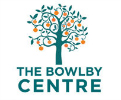Practicalities of Training
Time commitment of training
The taught part of the course is over three terms. Each term requires the students to attend every alternate weekend on Friday afternoons and Saturday all day. Attendance times on the Friday are yet to be confirmed but is likely to be 2pm-5pm. Attendance on Saturdays will be 10am-5.15pm. The teaching will take place at Highbury Grove Academy
There will be one weekend a term for an experiential group. These weekends will be on a Saturday and Sunday 10am-4pm. On these weekends there will be no Friday teaching.
You should allow for a commitment of at least 12 hours for reading and other commitments (reading, therapy, infant observation, clinical forums, etc) between the weekends. This will increase when clinical training begins and you start having weekly supervision.
Clinical Forums are usually on the second Saturday of each month in term time from 11am-1pm.
Costs
Personal therapy: on average Fees are negotiated with the training therapist and can be from £80 to £100 a session. Many psychotherapists will offer reduced fee sessions for trainees who attend twice weekly. There is a requirement, unless agreed by the clinical training committee for all students to be in twice weekly therapy for Year one and this may be decreased to once a week personal therapy for the rest of the course and up until registration.
Tuition fees: TBC
Supervision fees: Around £70 per session, each week. Two supervisors are required before registration, but do not have to be concurrent.
Insurance: required once a student becomes a psychotherapist in training. Typically this is around £100 per year.
Books, photocopying, journals and conferences: on average around £350 per year.
Interruptions in training
Students are recommended to complete Years 1 and 2 without interruption. If students then need a break they can rejoin another year group in Year 3.
Clinical and academic requirements
Personal therapy
Students must undertake a personal therapy with a registered therapist who fulfils The Bowlby Centre criteria for training therapists and stay in therapy at least until Registration. They must be in therapy twice a week in Year one, decreasing to once a week from Year 2 onwards until registration. They usually have had at least one year of individual adult psychoanalytic psychotherapy prior to the start of the course.
Work with clients
From the time they are approved as a Psychotherapist-in-Training, Bowlby Centre trainees work with clients. Their training client must be seen at least twice a week for at least eighteen months. Students cannot qualify without having seen a minimum of seven clients, including two of 18 months duration. The Centre may refer suitable clients to trainees as well as to registered members via The Blues Project and Special Projects which offer low cost therapy to people on benefit or a low wage. Our referrals team aims to refer at least two clients to each trainee.
Supervision
Weekly supervision is required from the beginning of clinical work until registration. The trainee must work with two supervisors, one for a minimum of eighteen months and the second for a minimum of six months.
Written work and course attendance
Students/trainees are expected to attend all the seminars of the taught part of the course, unless there are exceptional circumstances. Written presentations, an infant observation paper, and a clinical paper on work with a long term client are part of the final required written work.
Assessment, standards and ethical requirements
All members are required to abide by The Bowlby Centre’s Code of Ethics and Code of Practice.
Self reflection and assessment is an integral part of the training and forms a basis, along with feedback from teachers and tutors, for an annual assessment when progress is considered and permission to continue into the next year of training is given by the Clinical Training Committee.
Students are formally assessed at two points in the training:
In the second year each student produces a folder which is the basis of their application to begin clinical work under supervision. They discuss this application with their Course Tutor and two assessors who report their recommendation about continuation into the clinical part of the course to the Clinical Training Committee for their ratification.
At the point when each student is ready to register as an Attachment-based Psychoanalytic Psychotherapist having met the clinical work requirements of the course.
Assessment at this second stage is made by the consideration of a portfolio which is a compilation of a Clinical Paper on long term work with a client which demonstrates an understanding of theory and a capacity for self-reflection, supervisors’ reports, reflections on learning, and an infant observation paper.
Two members from both the Clinical Training Committee and the wider Bowlby Centre each conduct a Registration Assessment Interview, and provide written feedback to the Course Tutor, who makes recommendations to the Clinical Training Committee, which takes the final decision.
For Registration, students are required to demonstrate:
Clear understanding of attachment-based psychoanalytic psychotherapy and its application to their own lives, and those of others
Evidence of a theoretical understanding of attachment theory and psychoanalysis
Acceptable clinical experience over a minimum of two years
Experience of supervision
Understanding of the requirements for Continuing Professional Development
An understanding of the ethical requirements for practice
